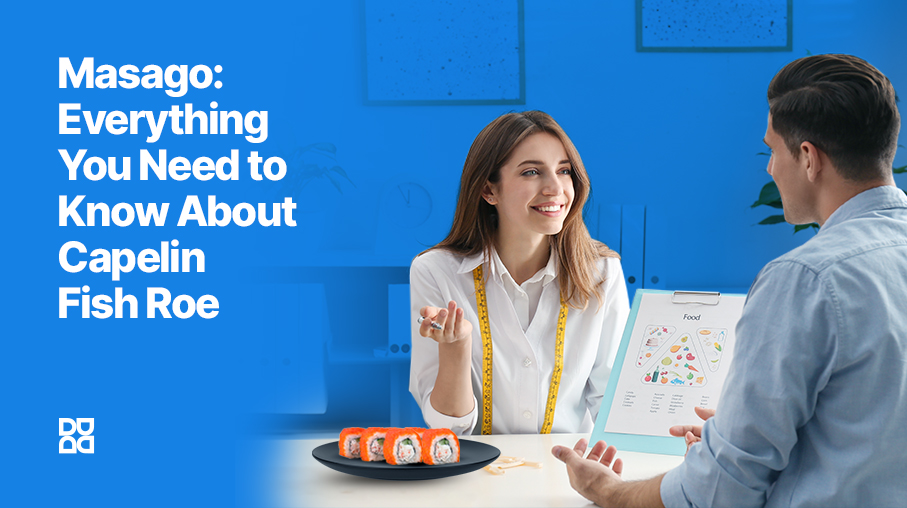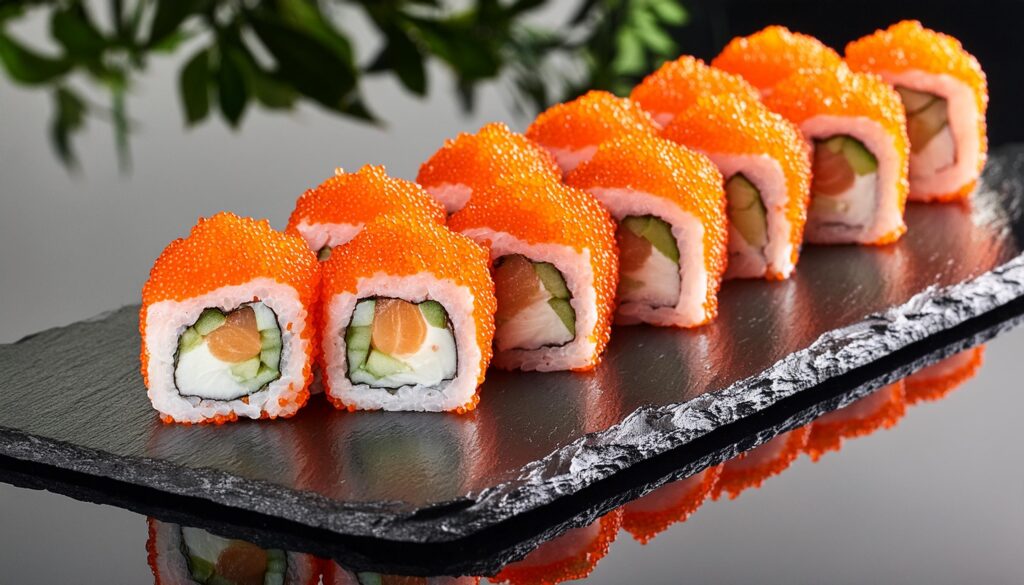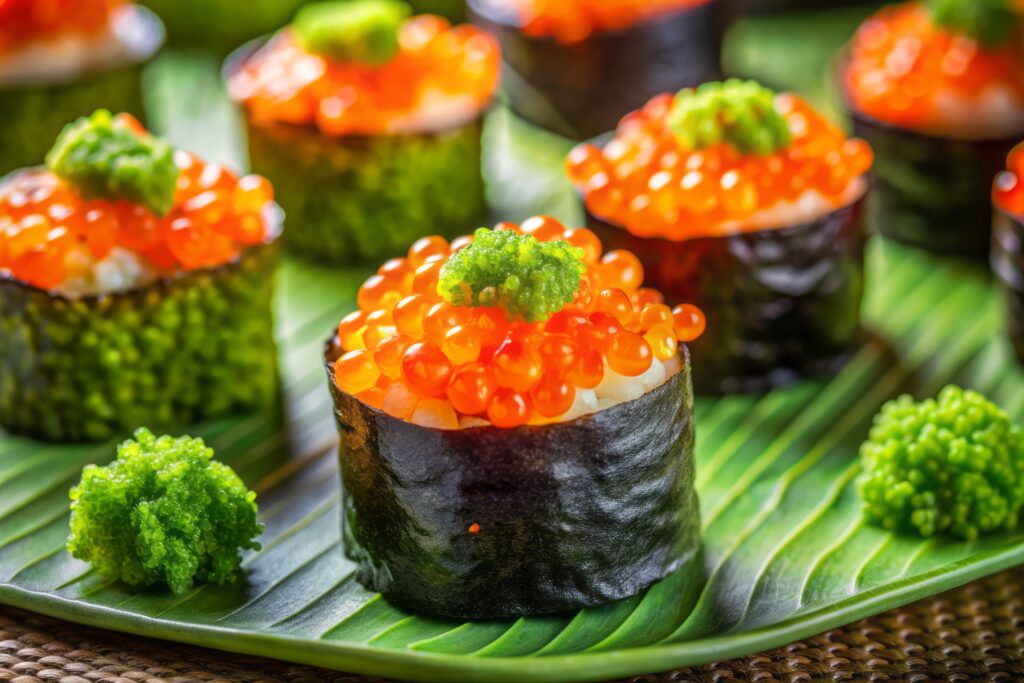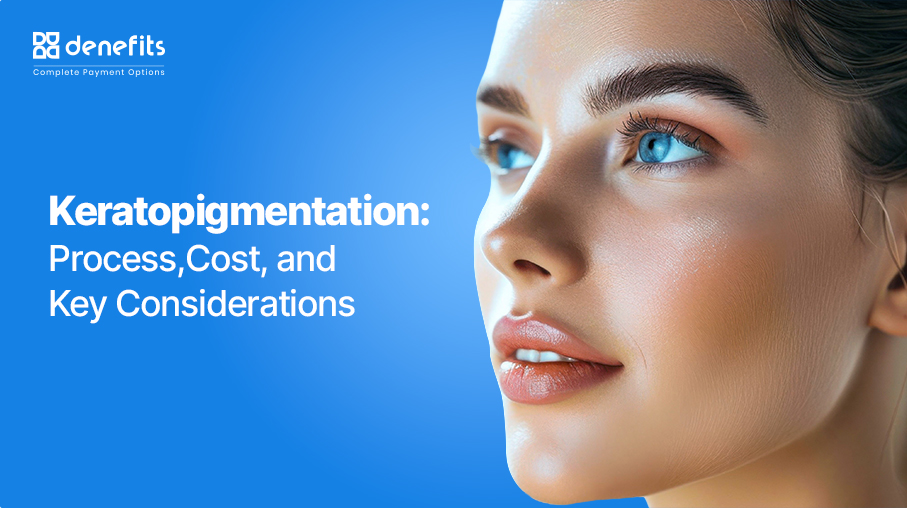
Have you heard about edible fish eggs called Masago? Well, if you haven’t, it’s about time you consider adding these capelin fish roe as an enriching ingredient to your diet. We’re talking masago sushi, masago sauce, and more delicacies that these masago eggs complement. So, what exactly is masago? Let’s dive right into it!
What Is Masago?
Edible fish eggs. Yes, considered a Japanese delicacy, it's popular in Asian cuisine and usually served with 'Masago' Sushi. Not to mention the relished Masago sauce. Roe of the capelin, a small fish in the smelt family, Masago is pale yellow and has a mild flavor and delightful crunch. It is often dyed bright colors to add visual appeal to the dish it complements. And sometimes, it is paired with ingredients like wasabi, squid ink, or ginger to add to its flavor.

Despite its delectable taste, the capelin roe is mostly popular for its nutritional value. Packed with protein, omega-3 fatty acids, and essential vitamins and minerals, Masago is a healthy addition to various dishes. Who thought fish eggs on sushi could be so good?
Nutritional Value Of Masago
| Nutrient | Amount per 100g |
|---|---|
| Calories | 100 kcal |
| Protein | 13 g |
| Fat | 4 g |
| Carbohydrates | 1 g |
| Fiber | 0 g |
| Sugar | 1 g |
| Sodium | 600 mg |
| Cholesterol | 350 mg |
| Omega-3 Fatty Acids | 0.5 g |
| Vitamin A | 300 IU |
| Vitamin C | 0 mg |
| Calcium | 30 mg |
| Iron | 1 mg |
Considering its nutritional value, it's quite obvious that Masago offers many health benefits. From heart health to immune support, this nutrient-dense roe is a powerhouse of wellness.
Benefits of Consuming Masago
| Benefit | Explanation |
|---|---|
| High Protein Content | Supports muscle growth and repair. Protein is essential for building and repairing tissues, and for the production of enzymes and hormones. |
| Rich in Omega-3 Fatty Acids | Promotes heart health and reduces inflammation. Omega-3 fatty acids lower the risk of heart disease and have anti-inflammatory properties. |
| Low in Calories | Aids in weight management. With only 100 calories per 100 grams, it helps you feel full without excessive calorie intake. |
| Essential Vitamins & Minerals | Supports overall health and wellbeing. Provides nutrients like vitamin A, calcium, and iron, crucial for vision, bone health, and preventing anemia. |
| High Sodium Content | Can help replenish electrolytes, especially for athletes who lose a lot of sodium through sweat. Should be consumed in moderation. |
| Source of Antioxidants | Protects cells from damage by neutralizing free radicals, reducing oxidative stress, and lowering the risk of chronic diseases. |
| Supports Brain Health | Enhances cognitive function. Omega-3 fatty acids in Masago benefit brain health and potentially reduce the risk of neurodegenerative diseases. |
| Promotes Healthy Skin | Improves skin health by keeping it moisturized and reducing inflammation, thanks to its vitamins and fatty acids. |
| Boosts Immune System | Strengthens the body’s defense mechanisms. Vitamins and minerals in Masago support the immune system, helping to fight off infections and illnesses. |
| Enhances Bone Health | Strengthens bones and teeth. Calcium and vitamin D in Masago are vital for maintaining strong bones and preventing osteoporosis. |
What is Tobiko?
Similar to Masago, Tobiko is the roe of flying fish. Yes, if your recent search has ‘Tobiko meaning’ in it, it’s literally edible flying fish eggs. Brightly colored, crunchy roe, these are also a relished ingredient in Asian cuisine. Although commonly visualized as orange fish eggs, it comes in various colors, including black, red, green, and yellow.

Much like capelin roe, these are another widely popular delicacy, often referred to as sushi fish eggs. So, if you’re ever looking for options for roe fish, roe sushi or roe food, Masago and Tobiko are likely to be your top choices. Although there are many other edible fish eggs, it usually comes down to masago vs tobiko.
While both are types of fish roe, there are slight differences in size, texture, and flavor that distinguish them. Masago is also more affordable, making it a popular choice in many recipes. Let's delve into the slight differences in the following table.
Tobiko Vs Masago: Similarities And Differences
| Feature/Benefit | Tobiko (Flying Fish Roe) | Masago (Capelin Roe) |
|---|---|---|
| Nutritional Content | Similar in calories, protein, fat, and carbs. Contains more Omega-3 fatty acids and less sodium. | Similar in calories, protein, fat, and carbs. Contains less Omega-3 fatty acids and more sodium. |
| Texture | Crunchy | Slightly softer than Tobiko |
| Color | Bright orange, can be colored (red, green, black) | Natural pale orange |
| Flavor | Slightly sweet and salty with a smoky flavor | Mild and less distinct than Tobiko |
| Common Use | Sushi, garnishes, sauces | Sushi, garnishes |
| Price | Generally more expensive | Generally more affordable |
Consuming Masago in the Right Quantity for Balanced Nutrition
While the smelt roe, Masago, is beneficial for health, it's crucial to consume it in moderation and ensure you're not allergic.
Potential Risks Associated with High Intake of Smelt Egg:
- High Sodium Intake: Can lead to high blood pressure and kidney problems.
- High Cholesterol Levels: May increase the risk of heart disease.
- Mercury Exposure: Risk of mercury accumulation, harmful in large amounts.
- Allergic Reactions: Can trigger allergies in sensitive individuals.
- Weight Gain: Contributes to weight gain when consumed excessively.
- Nutrient Imbalance: May lead to dietary nutrient imbalances.
Who Should Avoid Eating Capelin Fish Masago Eggs:
- People with fish allergies
- Those with high blood pressure
- Pregnant or breastfeeding women
- Individuals on a low-sodium diet
Why Consult a Nutritionist Before Consuming Masago
Now that you know ‘what is roe fish’ and ‘what is masago in sushi’, and are aware of the health benefits and considerations of consuming Masago, it’s also important to ensure you eat these fish eggs on sushi or other delicacies in the right amount. Consulting a nutritionist can help optimize your diet and overall health, here’s why:
- Personalized dietary recommendations
- Guidance on managing specific health conditions
- Ensuring a balanced nutrient intake
Cost of Nutritionist In the USA
On average, a nutritionist consultation in the US costs between $100 to $200. While the initial consultation may not be overly expensive, follow-up sessions can add to the overall cost.
Average Costs Associated with A Nutritionist Visit
| Service | Price Range |
|---|---|
| Initial Consultation | $100 - $150 |
| Personalized Diet Plan | $50 - $100 |
| Follow-up Sessions | $75 - $100 per session |
| Comprehensive Assessment | $150 - $200 |
| Long-term Package | $500 - $1,000 |
Cost of Nutritionist Visit by State
| State | Average Cash Price |
|---|---|
| Alabama | $73 - $108 |
| Alaska | $99 -$147 |
| Arizona | $80 - $123 |
| Arkansas | $72 - $107 |
| California | $90 - $135 |
| Colorado | $80 -$118 |
| Connecticut | $87 -$130 |
| Delaware | $85 - $126 |
| Florida | $80 -$119 |
| Georgia | $75 -$112 |
| Hawaii | $76 -$113 |
| Idaho | $74 -$110 |
| Illinois | $84 -$124 |
| Indiana | $76 -$113 |
| Iowa | $69 -$103 |
| Kansas | $72 -$107 |
| Kentucky | $73 -$109 |
| Louisiana | $82 -$121 |
| Maine | $74 -$110 |
| Maryland | $87 -$129 |
| Massachusetts | $89 -$133 |
| Michigan | $82 -$122 |
| Minnesota | $93 -$138 |
| Missouri | $73 -$109 |
| Montana | $76 -$113 |
| Nebraska | $74 -$111 |
| Nevada | $79 -$117 |
| New Hampshire | $79 -$117 |
| New Jersey | $79 -$117 |
| New Mexico | $73 -$108 |
| New York | $90 -$134 |
| North Carolina | $72 -$107 |
| North Dakota | $80 -$119 |
| Ohio | $75 -$112 |
| Oklahoma | $80 -$119 |
| Pennsylvania | $85 -$126 |
| Rhode Island | $90 -$134 |
| South Carolina | $77 -$114 |
| South Dakota | $72 -$107 |
| Tennessee | $72 -$108 |
| Texas | $78 -$116 |
| Utah | $81 -$121 |
| Vermont | $80 -$119 |
| Virginia | $78 -$119 |
| Washington | $87 -$129 |
| West Virginia | $78 -$116 |
| Wisconsin | $82 -$122 |
| Wyoming | $82 -$122 |
Does Insurance Cover Your Nutritionist‘s Visit?
While consulting a nutritionist should be a common practice for optimal health, it's not always the norm, and insurance coverage for these services can vary. Many health insurance plans offer partial or full coverage for nutritionist consultations, but it's important to check your specific plan for details.
Managing the Cost of a Nutritionist Without Insurance
Even if your insurance doesn't cover nutritionist consultations, it's important not to skip them, especially when incorporating ingredients like Masago into your diet. There are ways to manage the cost effectively without insurance.
Many nutritionists offer payment plans and benefits to help you manage the cost of consultations, including recurring ones. And Denefits allows them to do so effectively with flexible payment plans. These plans can spread out the cost associated with a Nutritionist’s visit over time, making it more affordable.
With Denefits, you can consult a nutritionist without any second thoughts.
- High chances of approval
- No credit check policy
- Flexible payment tenures
- Convenient monthly payments
So, if you want to add high nutrition value ingredients like Masago in your diet, you can now easily access top notch nutritionists in your area. Be sure to look out for nutritionists who offer Denefits’ payment plans for greater convenience and affordability.
Conclusion
Masago offers numerous health benefits but should be consumed in moderation. Consulting a nutritionist is essential to ensure you're eating the right amount, and while insurance coverage may vary, there are ways to manage costs. Many nutritionists provide payment plans that include options like high approval chances, no credit checks, flexible tenures, and convenient monthly payments. This approach helps make nutritional guidance more accessible and manageable.
Frequently Asked Questions About Fish Roe Masago
1. What Is Fish Roe?
Simply put, fish roe refers to the fully ripe eggs of fish or certain marine animals. Fish roe, such as Masago, is often used as an ingredient in Asian cuisine, especially in sushi.
2. What Types of Fish Roe Are Commonly Eaten?
Salmon roe, sturgeon roe, capelin roe, and flying fish roe are the most commonly relished fish roe.
3. What Are Fish Eggs Called?
Roe. However, the eggs of different fish have unique names, For instance, sturgeon fish eggs are commonly called caviar, salmon fish eggs are known as ikura, and capelin fish roe is called masago.
4. Is Fish Roe Healthy?
The short answer is yes. In fact, fish roe are sometimes consumed ONLY because of the nutritional value it adds to one's diet. It is rich in protein, vitamins, and minerals. However, it's advised that you consult a nutritionist before consuming fish roe like masago.
5. Is Masago Affordable?
Yes, masago is far more affordable compared to other fish roe. However, its best to consume it in moderation. Consider a nutritionist before incorporating it into your diet as a source of nutrition because moderation is key.


